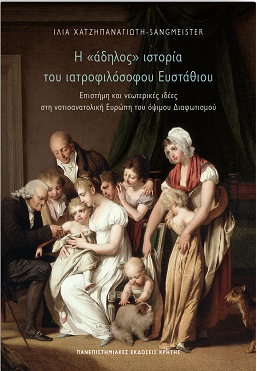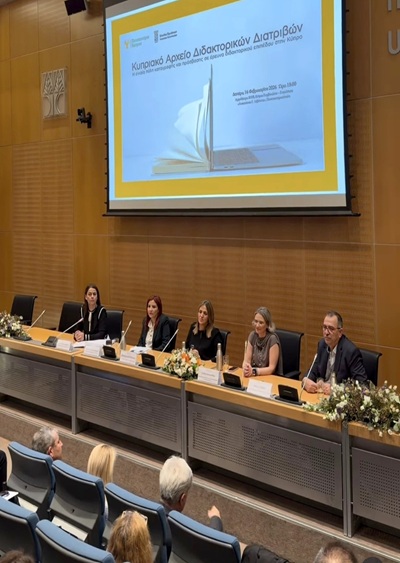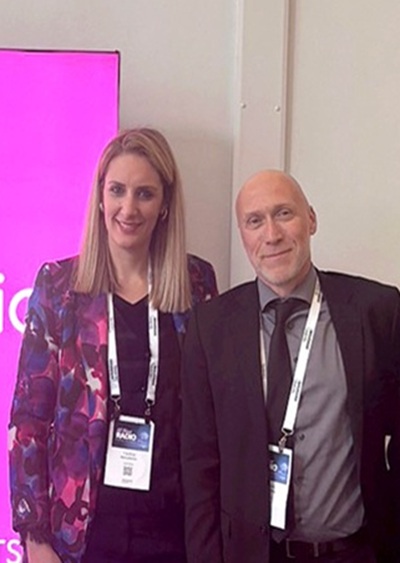
The official announcement and award of the awards of the Three Classes of the Academy of Athens of Greece for 2022 took place on December 20, 2022, in a festive atmosphere as it was the first corresponding ceremony with the presence of the public after the pandemic. The highest spiritual foundation of Greece awarded the Eleni and Panos Psimenos Prize of the Second Class of letters and Fine Arts, which is the most important distinction for “published work, referring to modern Greek history or literature from 1669 until today”, with a cash prize of 1.500 euros, to the Modern Greek artist Ilya Hatzipanayiotis-Sangmeister for her book, “The” Untold ” History Of The Physician-Philosopher Eustathios. Science and modern ideas in southeastern Europe of the late Enlightenment” (University publications of Crete, Heraklion 2021).
The Rector of the University of Cyprus, Professor Tassos Christofides, after congratulating the professor for her award, praised her work and contribution. “Ilia Hatzipanayiotis-Sangmeister, with her unique and important academic, research and writing career, is worthy of being among the top scientists in the country. The award of the prize by the Academy of Athens is a practical recognition of its contribution to science and Society” , noted the Rector.

Ilya Hatzipanayioti, graduate of the Department of Byzantine and Modern Greek Studies of the University of Athens and Doctor of the University of Vienna, has taught at the Universities of Bonn and Vienna, while since 2002 she has been a member of the Department of Byzantine and Modern Greek Studies of the University of Cyprus – since 2018 as a professor. He was a fellow of the Onassis Foundation and Dr. Günther Findel-Stiftung (Wolfenbüttel), and has served as a Visiting Research Fellow at Princeton University. Her award-winning work “the “ignorant” history of the physician-philosopher Eustathius” is her sixth book and studies the transfer of scientific (in particular medical) knowledge and radical political ideas to Southeastern Europe during the age of Enlightenment. Using portraiture as a tool (the biography of Doctor Efstathios Athanasios 1766-1831), the author reconsiders the processes and networks of knowledge and ideas transfer, and explores their dissemination in Greek society and literature. The study provides important conclusions on the history of Medicine, on the circulation of the foreign-language book in the Balkans, on the relations between medicine and literature and on the radical movements that culminated in the founding of the Filiki Eteria. Locating and utilizing a wide variety of sources (unpublished letters, student registers, friendship albums, diaries and newspapers), the author opens multiple doors for her reader (the expert scientist, but also everyone interested) to enter the Greek world of the late 18th and early 19th century. “The numerous fragments, from which the narrative of the life of The Forgotten Athanasius emerges compactly”, notes a book critic, “lead the reader beyond the usual thematic segmentation of research, to a complex approach to the phenomenon of the Modern Greek Enlightenment. […]
Scientific, student, Masonic, social, economic, cultural and revolutionary networks gradually unfold along with the steps of Athanasius ‘ life. The “Adelos” history invites us, finally, through the seeds of Athanasius, to think anew about the classic reading scheme of the Modern Greek Enlightenment, the “transfer” of ideas and, moreover, to critically review the theoretical approaches to medicine not only of the Greek, but also of the European Enlightenment”.







Leave A Comment